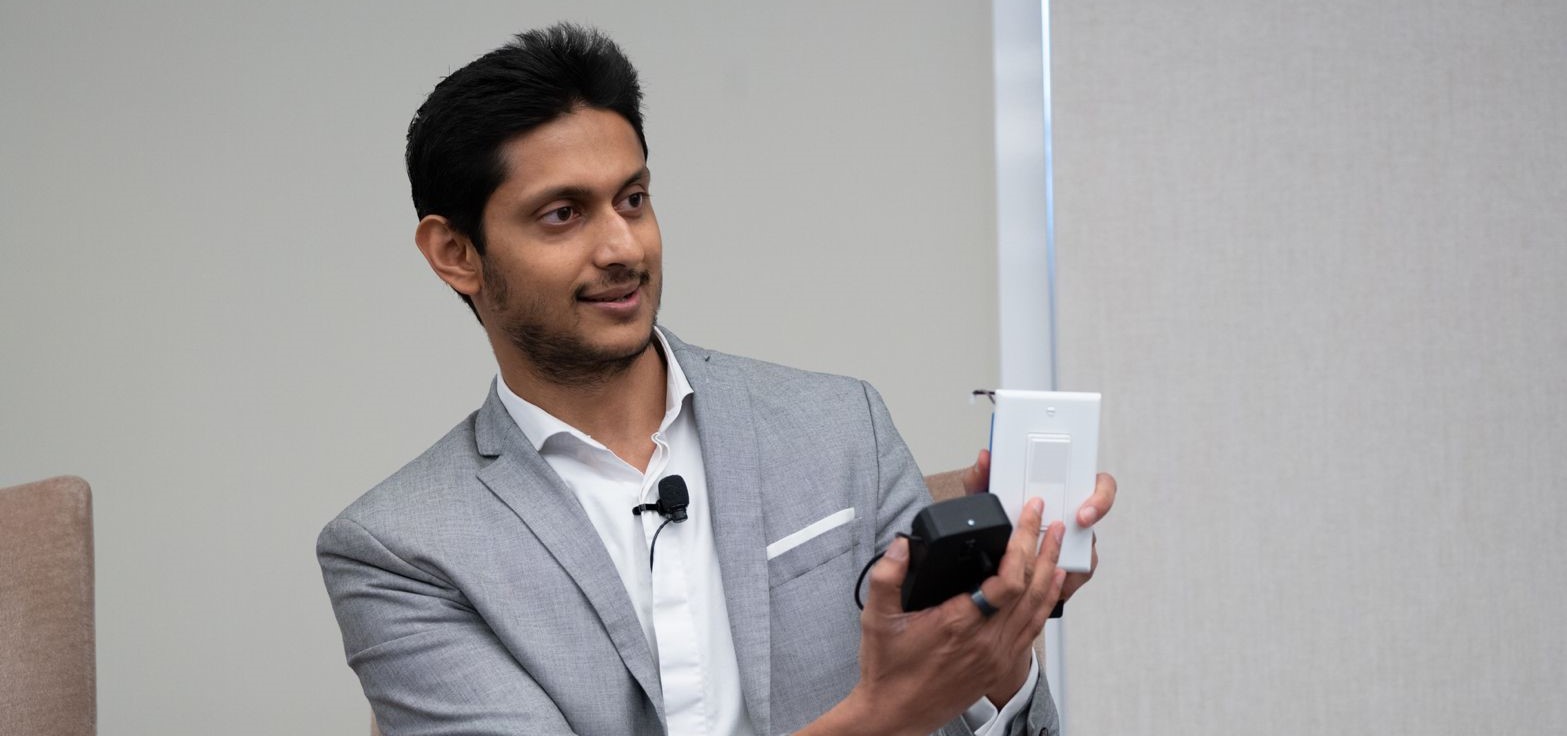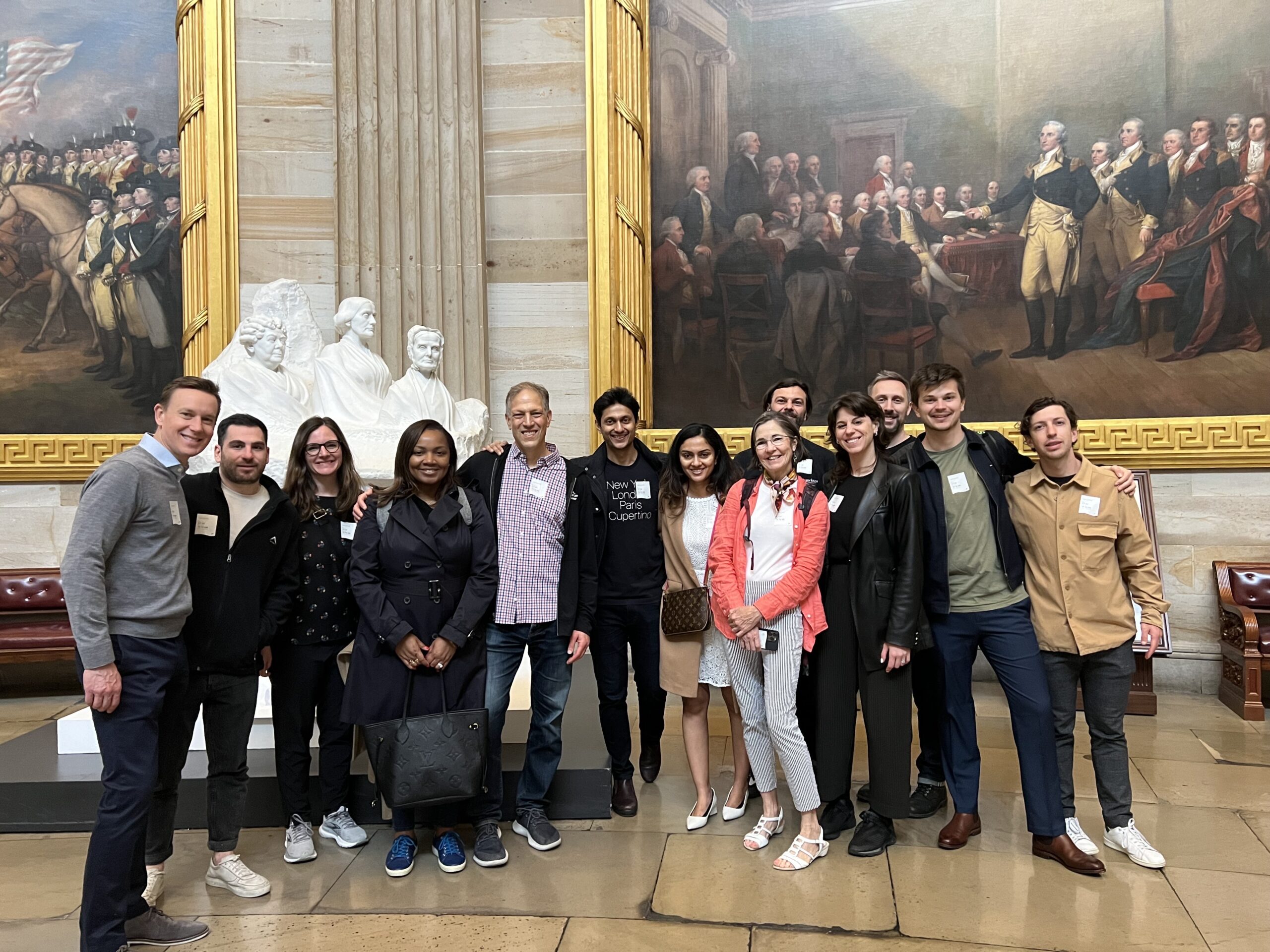Introducing Dhaval Patel and Lotus
Q: Can you introduce yourself and tell us about your company, Lotus?
A: I’m Dhaval Patel. My background includes managing a division at Apple for products like the iPhone Watch and AirPods. I’ve recently founded Lotus. We’ve created a wearable ring specifically designed for people with limited mobility. It allows users to control various objects at home simply by pointing at them.
Q: What inspired the idea for this wearable ring?
A: It stemmed from personal experience. I was born with twisted knees, so I’ve had periods where I needed crutches. A particular incident that sparked the idea happened a few years ago. I went to bed and realized I left the lights on. I was too exhausted to get up, grab my crutches, and turn them off. That night, I slept with the lights on. The next morning, it struck me—if I, an engineer with numerous patents, didn’t utilize smart home technology, then who would? It felt like a call to action.
Joining the Ranks of Techstars
Q: What motivated you to join the startup accelerator Techstars?
A: Though I am an engineer with a robust background, I wasn’t versed in the intricacies of founding and running a startup. My stint at a startup post-Apple was insightful, but it didn’t fully equip me with the knowledge a founder needs. Joining an accelerator like Techstars seemed like the perfect opportunity to fill in the gaps and receive expert coaching on the unknowns of startup life.
The Competitive Techstars Application Journey
Q: Could you briefly describe the application process for Techstars?
A: Sure, Techstars has a unified application that’s distributed across their various programs. Applicants choose their top three preferences, and then it’s a matter of waiting for interested calls. But there are also Ask Me Anything sessions you can attend, which can lead to callbacks as well.
Q: How competitive was the Techstars application process, and what made your company stand out?
A: We learned afterward that the acceptance rate was around 3 to 4 per cent, which is quite competitive, even more so than getting into an Ivy League school. I believe what set Lotus apart was our unique value proposition—a tangible solution born from a genuine need, coupled with my technical background and patent portfolio.
Understanding the Standout Factors for Techstars Acceptance
Q: What do you believe set Lotus apart in the Techstars application process?
A: I believe a couple of things made the difference for us. Techstars emphasizes the importance of founder-market fit, which evaluates if the founder has the necessary skills or deep personal experience to create the product they’re proposing. They’re less concerned with whether you can run a company because they expect to coach you through that. So for Lotus, the fit was clear due to my engineering background and personal experiences.
Q: Can you expand on the importance of the team and traction for Techstars?
A: The team is nearly as crucial as the founder-market fit. They’re looking for a group of individuals that complement each other’s skills and experiences. Traction comes in third; it’s not about having all the answers but showing that you’re moving in the right direction. Techstars knows this, and it’s part of their selection framework.
Lotus’s Unique Edge in the Techstars Selection Process
Q: Apart from meeting the necessary criteria, what else gave Lotus an edge?
A: Beyond meeting the criteria, which were essential but not the sole determinants, we had a distinct differentiator. Our product is unique; there’s nothing on the market like the wearable ring we developed at Lotus. This novelty captured attention, as it was evident that we were venturing into uncharted territory, filling an evident gap.
Q: How significant were personal relationships during the application process?
A: Extremely significant. Building personal relationships and genuinely connecting with the people at Techstars turned out to be invaluable. These individuals, who are just human like us, resonated with our mission and were keen to support us. They provided insights into the application process and what the selection team looks for, which was immensely helpful.
Q: So, personal relationships helped you navigate the application process better?
A: Absolutely. Those relationships opened doors to better understand the application nuances and receive guidance, which could be critical in advancing through the selection rounds. It’s a testament to the power of building genuine connections and the human element in the business.
The Intensive Pace of the Techstars Program
Q: Could you describe the intensity and structure of the Techstars program’s curriculum?
A: Techstars operates on a highly condensed timeline. They essentially take all the work you’d spread over six to nine months and compress it into three. It’s demanding—I often got by on as little as four hours of sleep. But the benefit is twofold: the acceleration of your work and the constant oversight and feedback from the program, which is invaluable. Whether it’s your pitch deck or financial model, they’re there to assist. It’s a bit like going back to school, with a curriculum of classes on various topics and a flurry of hands-on work.
Access to Mentorship and Support in Techstars
Q: How much access to mentors does Techstars provide, and what kind of support do they offer?
A: Techstars stands out due to its emphasis on mentorship—what they call “Mentor Madness.” It’s an intense period where you’re in back-to-back meetings with a multitude of mentors. This rapid-fire feedback helps you form relationships that would typically take months to develop on your own. Within just ten days, you gain a wealth of insights into your company’s strategy. After that, you select your top mentors, and they select their top startups to continue regular meetings, usually weekly. These mentors can become integral to your startup, often converting to advisors or even investors, as was our case at Lotus.
Clarifications on Techstars Funding Terms and Follow-On Investments
Q: Can you clarify the funding you received from Techstars and the terms involved?
A: There’s a common misconception about the funding from Techstars. People often think the 6% or 7% equity they take is for $120,000. However, it’s actually for $20,000. Then there’s an option for an additional $100,000 as a convertible note, which most participants opt for, leading to confusion. Importantly, you have to decide if you’re taking the additional $100,000 within the first week of acceptance into the program.
Q: Does Techstars usually invest in later funding rounds for participating startups?
A: Techstars does participate in follow-on rounds, but not automatically for every company. They typically invest in later rounds where the valuation cap is significantly higher than at their entry point, which is around 3 to 5 million dollars. They pick and choose carefully, looking for a substantial increase in valuation before committing further investment.
Significant Milestones Achieved During the Techstars Program
Q: What significant milestones did your company achieve during the Techstars program?
A: A pivotal achievement for us was shifting our business model from direct-to-consumer to B2B. This strategic pivot during the accelerator led to securing 14 pilot projects within just 30 days, far exceeding the goal of landing a single pilot by demo day.
Q: How did this pivot to B2B and the acquisition of business customers happen?
A: The pivot was based on feedback during Mentor Madness, where the consensus was that a direct-to-consumer approach would require significant capital. For survivability, a B2B strategy was suggested as safer. I then conducted B2B interviews for about a month and a half, which led to these pilot projects. Techstars helped with introductions due to their extensive network within our vertical, but it was up to us to leverage those connections effectively for interviews, investments, or sales.
Q: Did you encounter any challenges during your time in the Techstars program?
A: Yes, the program was particularly challenging. As a solo founder, the workload was overwhelming. You’re expected to manage your existing business commitments alongside the full-time demands of the accelerator. This includes a schedule packed with meetings, lectures, and assignments.
Q: How did these challenges impact your personal and work-life balance?
A: It significantly disrupted the balance. Essentially, for three months, my personal life took a backseat. It required having frank conversations with loved ones to manage expectations during the program.
Q: How did you manage to overcome these challenges?
A: Overcoming might be too strong a word; survival fits better. Open communication with my fiancée and her support was crucial. Techstars is aware of these stresses and provides a support system called the Founder Forum. It’s an unrecorded, weekly meeting exclusively for CEOs to discuss their challenges candidly, much like a peer support group. This was very helpful.
Current Status and Achievements of the Company
Q: What is the current status of the company and what have you achieved so far?
A: The company has reached several milestones post-Techstars. We successfully fundraised, becoming 200% oversubscribed in just two and a half months after Demo Day. We didn’t accept all the capital offered to us. Our hardware inventory has increased tenfold, from single digits to hundreds. We’ve signed six LOIs and have a verbal commitment from the state of New York, with more in the pipeline.
Q: What are the next milestones you’re targeting, and how did the accelerator prepare you for this?
A: We’re three months from the start of our first pilot and nine months from the product launch. While Techstars didn’t directly help with fundraising, they provided the tools necessary for fundraising – expanding my network and connecting with people in various domains outside of engineering, which is invaluable.
Advice for Prospective Techstars Applicants
Q: Do you have any final advice for those considering applying to Techstars?
A: It’s important to apply early and have confidence. Don’t be discouraged by previous rejections, as they don’t predict future outcomes. We were rejected by YC but accepted by several Techstars programs through individual interview processes. Networking at AMEs (Ask Me Anything events) is critical; it’s not only about getting into an accelerator but also about the connections you make and the value you demonstrate. If one door closes, others open, and there are many good accelerators out there.


